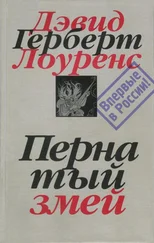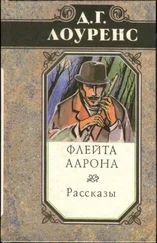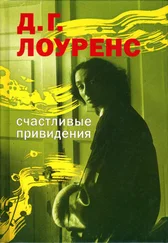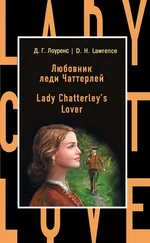Дэвид Лоуренс - Sons and Lovers
Здесь есть возможность читать онлайн «Дэвид Лоуренс - Sons and Lovers» весь текст электронной книги совершенно бесплатно (целиком полную версию без сокращений). В некоторых случаях можно слушать аудио, скачать через торрент в формате fb2 и присутствует краткое содержание. Жанр: Старинная литература, на английском языке. Описание произведения, (предисловие) а так же отзывы посетителей доступны на портале библиотеки ЛибКат.
- Название:Sons and Lovers
- Автор:
- Жанр:
- Год:неизвестен
- ISBN:нет данных
- Рейтинг книги:3 / 5. Голосов: 1
-
Избранное:Добавить в избранное
- Отзывы:
-
Ваша оценка:
- 60
- 1
- 2
- 3
- 4
- 5
Sons and Lovers: краткое содержание, описание и аннотация
Предлагаем к чтению аннотацию, описание, краткое содержание или предисловие (зависит от того, что написал сам автор книги «Sons and Lovers»). Если вы не нашли необходимую информацию о книге — напишите в комментариях, мы постараемся отыскать её.
Sons and Lovers — читать онлайн бесплатно полную книгу (весь текст) целиком
Ниже представлен текст книги, разбитый по страницам. Система сохранения места последней прочитанной страницы, позволяет с удобством читать онлайн бесплатно книгу «Sons and Lovers», без необходимости каждый раз заново искать на чём Вы остановились. Поставьте закладку, и сможете в любой момент перейти на страницу, на которой закончили чтение.
Интервал:
Закладка:
Many filmgoers encountered the work of D. H. Lawrence for the first time in director Jack Cardiff’s 1960 adaptation of the author’s semi-autobiographical novel Sons and Lovers . The film visually captures the contrast between a coal-mining backwater and London, where Paul Morel, played sensitively by a young Dean Stockwell, yearns to go. The screenplay maintains Lawrence’s subtlety as well as memorable dialogue, and two of the actors earned Oscar nominations for their powerful performances: Trevor Howard for his portrayal of Paul’s hard-drinking, oppressive father, and Mary Ure for her role as Paul’s lover, Clara Dawes. Sons and Lovers was nominated for seven Academy Awards, including Best Picture and Best Director, and it won for black-and-white cinematography.
Lawrence proved to be an inspiration to his longtime correspondent and travel companion, the author and scientist Aldous Huxley, who wrote several portraits of Lawrence. These include a vitriolic sketch in his short story “Two or Three Graces,” and a more sympathetic one in his novel Point Counter Point (1928), in the figure of Mark Rampion. In Brave New World (1932), Huxley’s character John the Savage is based on Lawrence, and part of the novel is set in surroundings based on Taos, New Mexico, where Huxley visited Lawrence.
The works of D. H. Lawrence are sometimes associated with the “free love” sensibility of the 1960s, when the author’s works became enormously popular, but that association would have shocked Lawrence. He was a strict moralist and did not intend for his explicit language and sexual content to encourage or even suggest sexual freedom. Indeed, Lawrence was high-minded about sex. When performed with reverence, he believed, the sexual act connects one with spiritual mysteries and the natural powers of the universe.
Comments & Questions
In this section, we aim to provide the reader with an array of perspectives on the text, as well as questions that challenge those perspectives. The commentary has been culled from sources as diverse as reviews contemporaneous with the work, letters written by the author, literary criticism of later generations, and appreciations written throughout the history of the book. Following the commentary, a series of questions seeks to filter D. H. Lawrence’s Sons and Lovers through a variety of points of view and bring about a richer understanding of this enduring work.
Comments
Lascelles Abercrombie
‘Odi et amo’ should have been on the title page of Mr. D. H. Lawrence’s Sons and Lovers . On the whole, the book may be said to contrast filial and maternal love with the kind of love which is called amour. A good many amours are described, involving several markedly diverse persons; but all the affairs and all the persons are unanimous in one matter—whatever kind of love it may be, some kind of hate is mixed up in it. A simultaneous passion of love and hatred is, of course, a well-known psychological fact; and certainly Mr. Lawrence makes its unfailing appearance in his story curiously credible. But it is not a very pleasant fact; is it not essentially a weakness of vitaility, a kind of failure—life failing to appreciate itself, hating itself because it cannot appreciate the splendour of its own fate? Whether or no, it is a fact one can easily have too much of. If Mr. Lawrence thought to give intensity to the whole length (the very considerable length) of his story by this mingling of contrary passions, he miscalculated seriously. The constant juxtaposition of love and hatred looks like an obsession; and, like all obsessions, soon becomes tiresome. You begin to look out for the word ’hate’ as soon as you have read the word ‘love’, like a sort of tedious game. ‘Odi et amo’ does marvellous well in an epigram; in a novel of four hundred odd pages it is a bore. The book has other faults. It has no particular shape and no recognizable plot; themes are casually taken up, and then as casually dropped, and there seems no reason why they should have been taken up unless they were to be kept up. Everything that happens is an extraordinarily long time about it, and sometimes it takes a very long time for nothing at all to happen. Faults like these ought to swamp any virtues the book may possess; set them down in this abstract fashion, and it seems incredible that Sons and Lovers can be anything but a dull success of cleverness. So, perhaps, it would be, if Mr. Lawrence were simply a novelist. But he is a poet, one of the most remarkable poets of the day; and these faults of his are actually of no more account than the soot of a brilliant, vehement flame. Indeed, you do not realize how astonishingly interesting the whole book is until you find yourself protesting that this thing or that thing bores you, and eagerly reading on in spite of your protestations. You decide that the old collier, the father, is a dirty brute; and then perceive that he profoundly has your sympathy. The mother is a creature of superb and lovable heroism; and yet there is no doubt that she is sometimes downright disagreeable. You think you are reading through an unimportant scene; and then find that is has burnt itself on your mind. The ’Odi et amo’ of the main theme, in fact, is only an exaggerated instance of the quality which runs through the whole book, which may be best described as contrary, in the sense the word has when it rhymes with Mary. Life, for Mr. Lawrence, is a coin which has both obverse and reverse; so it is for most people, but his unusual art consists in his surprising ability to illuminate both sides simultaneously. The scope and variety of the life he describes, his understanding and vivid realizing of circumstance and his insight into character, and chiefly his power of lighting a train of ordinary events to blaze up into singular significance, make Sons and Lovers stand out from the fiction of the day as an achievement of the first quality.
—from the Manchester Guardian (July 2, 1913)
The New York Times
There is probably no phrase much more hackneyed than that of “human document,” yet it is the only one which at all describes this very unusual book. It is hardly a story; rather the first part of a man’s life, from his birth until his 25th year, the conditions surrounding him, his strength and his numerous weaknesses, put before us in a manner which misses no subtlest effect either of emotion or environment. And the heroine of the book is not sweetheart, but mother; the mother with whose marriage the novel begins, with whose pathetic death it reaches its climax. The love for each other of the mother and her son, Paul Morel, is the mainspring of both their lives; it is portrayed tenderly, yet with a truthfulness which slurs nothing even of that friction which is unavoidable between members of two different generations.... It is wonderfully real, this daily life of the Morel family and the village wherein they lived as reflected in Mr. Lawrence’s pages; the more real because he never flaunts his knowledge of the intimate details of the existence led by these households whose men folk toil underground. They slip from his pen so unobtrusively that it is only when we pause and consider that we recognize how full and complete is the background against which he projects his principal characters—Mr. and Mrs. Morel, Paul, Miriam, and Clara.
Paul himself is a person who awakens interest rather than sympathy ; it is difficult not to despise him a little for his weakness, his constant need—of that strengthening he sought from two other women, but which only his splendid, indomitable little mother could give him—a fact of which he was constantly aware, though he acknowledged it only at the very end. And it is not easy upon any grounds to excuse his treatment of Miriam, even though it was a spiritual self-defense which urged him to disloyalty. Mr. Lawrence has small regard for what we term conventional morality; nevertheless, though plain spoken to a degree, his book is not in the least offensive.... Although this is a novel of over 500 closely printed pages the style is terse—so terse that at times it produces an effect as of short, sharp hammer strokes. Yet it is flexible, too, as shown by its success in depicting varying shades of mood, in expressing those more intimate emotions which are so very nearly inexpressible. Yet, when all is said, it is the complex character of Miriam, she who was only Paul’s “conscience, not his mate,” and the beautiful bond between the restless son and the mother whom “his soul could not leave” even when she slept and “dreamed her young dream” which makes this book one of rare excellence.
Читать дальшеИнтервал:
Закладка:
Похожие книги на «Sons and Lovers»
Представляем Вашему вниманию похожие книги на «Sons and Lovers» списком для выбора. Мы отобрали схожую по названию и смыслу литературу в надежде предоставить читателям больше вариантов отыскать новые, интересные, ещё непрочитанные произведения.
Обсуждение, отзывы о книге «Sons and Lovers» и просто собственные мнения читателей. Оставьте ваши комментарии, напишите, что Вы думаете о произведении, его смысле или главных героях. Укажите что конкретно понравилось, а что нет, и почему Вы так считаете.









